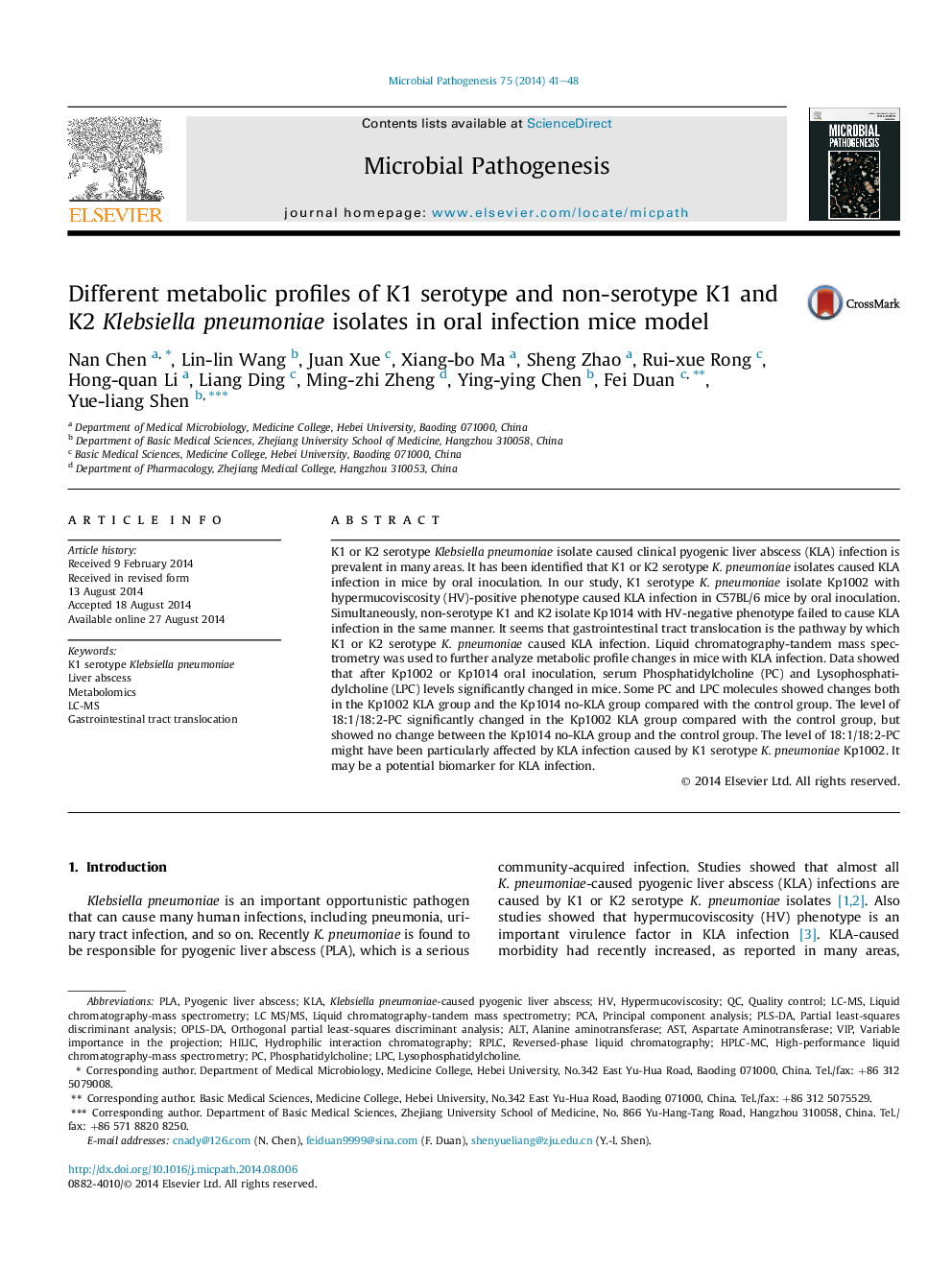| Article ID | Journal | Published Year | Pages | File Type |
|---|---|---|---|---|
| 3416593 | Microbial Pathogenesis | 2014 | 8 Pages |
•Gastrointestinal tract translocation was an important pathway for KLA infection.•Mice with KLA infection showed special serum metabolic profile.•Some metabolic products changed in Klebsiella pneumoniae not-caused KLA mice.
K1 or K2 serotype Klebsiella pneumoniae isolate caused clinical pyogenic liver abscess (KLA) infection is prevalent in many areas. It has been identified that K1 or K2 serotype K. pneumoniae isolates caused KLA infection in mice by oral inoculation. In our study, K1 serotype K. pneumoniae isolate Kp1002 with hypermucoviscosity (HV)-positive phenotype caused KLA infection in C57BL/6 mice by oral inoculation. Simultaneously, non-serotype K1 and K2 isolate Kp1014 with HV-negative phenotype failed to cause KLA infection in the same manner. It seems that gastrointestinal tract translocation is the pathway by which K1 or K2 serotype K. pneumoniae caused KLA infection. Liquid chromatography-tandem mass spectrometry was used to further analyze metabolic profile changes in mice with KLA infection. Data showed that after Kp1002 or Kp1014 oral inoculation, serum Phosphatidylcholine (PC) and Lysophosphatidylcholine (LPC) levels significantly changed in mice. Some PC and LPC molecules showed changes both in the Kp1002 KLA group and the Kp1014 no-KLA group compared with the control group. The level of 18:1/18:2-PC significantly changed in the Kp1002 KLA group compared with the control group, but showed no change between the Kp1014 no-KLA group and the control group. The level of 18:1/18:2-PC might have been particularly affected by KLA infection caused by K1 serotype K. pneumoniae Kp1002. It may be a potential biomarker for KLA infection.
